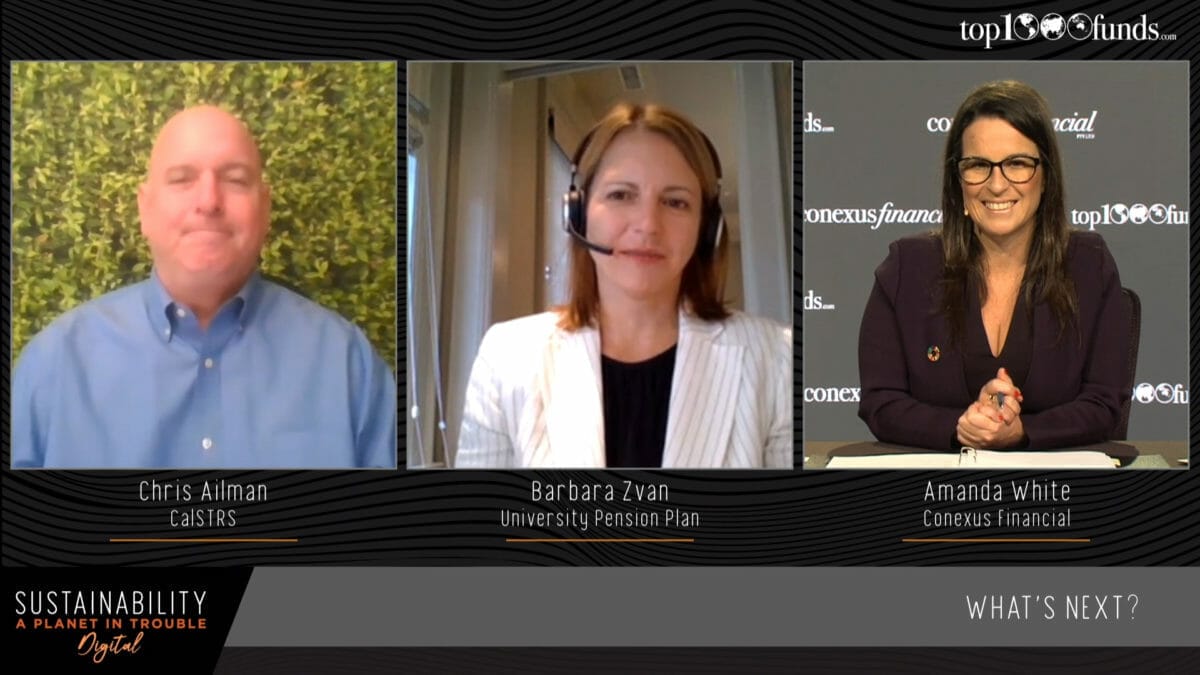“If you went through this pain and aggravation and suffering and you didn’t learn, well then shame on us. Shame on us”.
Hearing these words from New York Governor, Andrew Cuomo, pleading for a fundamental change to how society works in response to the pandemic gave me goose bumps.
COVID-19 has revealed some fundamental design flaws in our global economy. We have built our societies on the back of the growth imperative and therefore relentlessly pursued economic growth, and the efficiency of that growth, at all costs – not only at the expense of the environment but also at the expense of people, most evident through widening levels of inequality in our society. It is much harder to deal with the worst effects of the virus if you are poor and it is the key workers of our society who, in general, seem to be the most poorly paid.
These design flaws need to be fixed and I believe the investment industry has a role to play. Not least because we are an industry that oversees around $100 trillion of capital on behalf of billions of people and our investments have an impact on society. But also because social, environmental and financial issues are so globalised and interdependent that disruptions to these create systemic risks for capital markets and investors.
The coronavirus crisis reminds us that we need to embrace a systems framework for investing and improve our understanding of the context in which our portfolios exist.
A systems framework for investing
We can start by looking at how our investment organisations contribute to long-term value creation. Kate Raworth in her 2017 book, Doughnut economics, describes value creation by looking at humanity’s long-term goals where there is a “social foundation of wellbeing no one should fall below, and an ecological ceiling of planetary pressure we should not go beyond”.
Achieving this implies that organisations need to bring more stakeholders into their value creation boundaries – broadening definitions of value creation outwards beyond shareholders and clients, to embracing employees’ well-being, wider society and the planet.
Impact, the third dimension of investing, lies at the core of the investment industry’s societal purpose and its potential for value creation. It follows that our license to operate rests on taking responsibility for and managing this impact. And our license should only be maintained if the industry creates and communicates some value for wider society.
Now more than ever, investors need to move towards a systems framework for investing which recognises that our businesses and portfolios cannot be considered as independent from wider society or the environment. They will affect (and be affected by) both of them – for better or for worse. A systems-theory viewpoint starts with the idea that the returns we need can only come from a system that works and results in investment policies that directly incorporate ESG and foster the sustainability of investee companies and the system as a whole.
In other words, we need to move beyond the shallow mapping of sustainability factors onto investment outcomes to more holistic and reflexive policies that focus on the intentionality of the investor to produce positive real-world outcomes and therefore sustainable investment results. This is what it means to be a purposeful investor.
Universal owners: the most influential capital on the planet
Moving towards a systems framework for investing not only means that stewardship of existing assets really matters, but it also means that our provision of new capital needs to be directed towards investments that support a sustainable future. The crisis is another reminder that this reallocation of capital may be sooner than we previously thought.
Large asset owners have a unique role to play in influencing systemic issues. Universal owners are very large, long-term, leadership-minded organisations which, because of their size, hold a slice of the whole economy and market through their portfolios. These asset owners are exposed to global challenges and opportunities to influence outcomes lie in integrated management of the market exposure of the investment return.
Universal owners provide a natural base of investors who can understand and manage systemic risk through their investment strategy. But they are also well-placed to play a more influential role in safeguarding the financial system and contributing positively to big societal issues. In other words, they can “do well while doing good”. These asset owners are deliberate in aiming for impact (‘intentionality’) through their ability to produce positive system effects (‘additionality’).
Smaller asset owners can also influence the system by selectively employing universal ownership strategies within their portfolios. Often these funds are motivated by mission, values and beliefs considerations and need to exhibit the intentionality to influence and impact the system.
This can be done through collaboration with other larger asset pools or through delegating. If the latter, they need to be confident that performance metrics also address systemic issues. This can be achieved in part by asset owners shifting focus to principles-based evaluations of agents instead of the current verify and analyse model.
This starts with an evaluation of whether principles and beliefs (i) are clear, meaningful and actionable, (ii) are actually being followed (intentionality) and (iii) lead to the desired results (additionality).
Sharp investors are increasingly aware of the impact system-level issues, such as climate change and inequality, can have on their investments. And this crisis gives us the opportunity to proactively learn how to create wealth and prosperity in a world worth living in.
Marisa Hall MSc, FIA us the co-head of the Thinking Ahead Group, an independent research team at Willis Towers Watson and executive to the Thinking Ahead Institute.




Well said Marisa and I quote you on this: ‘social, environmental and financial issues are so globalised and interdependent that disruptions to these create systemic risks for capital markets and investors’.
Outstanding work Marisa! Congratulations! Thank you.